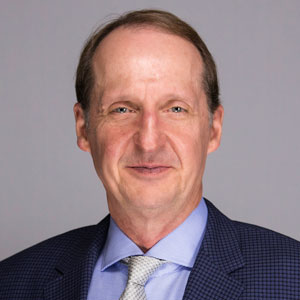Dian Schaffhauser: Distance Learning Ramp-up A Strategic View
date:2020-04-24 11:35author:adminsource:https://campustechnology.com/aviews:
When Arizona State University shifted the whole student body to online learning during its COVID-19 campus closure, it had an advantage: Lessons learned by EdPlus and ASU Online. In this interview, EdPlus CEO Phil Regier shares the pain and the promise of digital education at distance.

For some institutions, scaling up digital education delivered online is nothing new. Arizona State University's EdPlus division has been at it for more than a decade in one form or another. The office was officially launched in 2014, as a central unit focused on designing and scaling digital teaching and learning models to increase student success and reduce barriers to achievement in higher education. However, many of those involved, including EdPlus CEO Phil Regier, who also serves as the university dean of educational initiatives, immersed themselves in the work for many years prior to that.
Success has come on a grand scale. Between fall 2012 and fall 2019, the number of students taking online programs through EdPlus' ASU Online grew more than 12-fold, from an estimated 3,565 students to 45,073, pushing total IPEDS enrollment in 2019 at the university to 119,951.
Recently, Campus Technology checked in with Regier to get his perspective on how ASU as a whole is adjusting to shifting all of its teaching to online, introduced when coronavirus closed the school's in-person classes on March 16, 2020.
The interview has been edited for brevity and clarity.
Campus Technology: How are you doing? Are you working from home yourself?

EdPlus CEO Phil Regier
Phil Regier: Oh, yes. Absolutely. Everybody in EdPlus — all the success coaches, all the enrollment counselors, videographers, everybody is now working from home — and probably working harder than we have ever worked before. But obviously EdPlus was built for distance, and so we're very comfortable doing it.
CT: Can you share the route that EdPlus as an organization itself has followed as this pandemic has unfolded?
Regier: It's intensified the organization's operations. There is a negative correlation between enrollment interest and COVID-19 attention. But as the arc of COVID begins to flatten out and go down, we expect not only a return to the normal interest in online, we actually expect a surge in interest in online education. And that's what we're really trying to prepare for — making sure that all our systems, all our processes, our tools within the university [and] within EdPlus are ready to go and handle what I anticipate to be an increased demand for online education from students going forward.
CT: Did ASU at large turn to your group and say, OK, how do we shift to remote education for everybody?
Regier: ASU was well positioned before this. Remember, EdPlus' ASU Online has always been an integral part of the university. We aren't something that was separated off. We didn't hire our own faculty. What I always say is, if you get a history degree from ASU Online you get a history degree from that unit at ASU. And what that meant was that when the university made a decision to teach at distance the 70,000 campus-based students, we had a large number of online classes already being delivered. Those are referred to as "iCourses." We had a third to a half of the faculty that had been trained in how to do quality digital instruction from a distance. And so our faculty weren't panicked. It wasn't something new. Teaching at distance wasn't something new.

